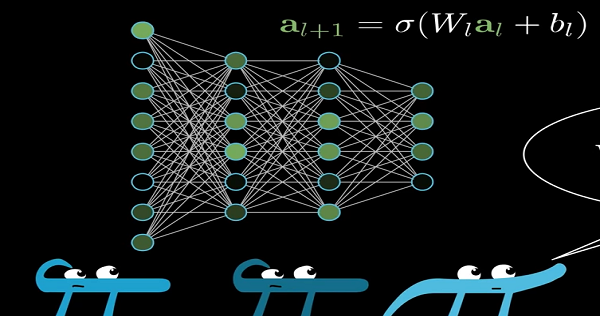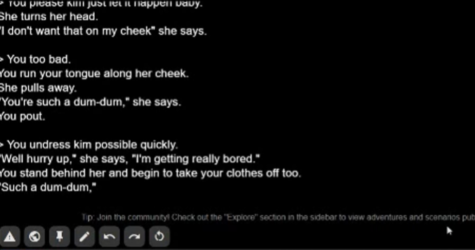
One of the initial widespread demonstrations of early facilitated machine learning, albeit the campaign stood under an eight foot tidal bore of political satire back when the political spectrum was not afflicted by bitter and toxic derision, was the Windows Notepad prank of the GW Bush’s first-term. One would simply type the phrase “Bush hid the facts” save and close the file, and open up the document to reveal a humorous garbled mush of characters numbers. While some devious software evangelist within the Redmond, Washington corridors of the Bill Gate’s empire implanted the “glitch”, the flesh and blood hand holding in guiding computers towards sentience was becoming more organically productive.
Fast forward fifteen years, and as the information age is currently suffering through the nepionic stages of development, the screaming toddler years abound in irony, a series of contemporary proverbs have appeared through human channels, however, it is only a matter of time before the creators of literature are made obsolete by the electronic deities residing in server banks. Within this enthralling, yet challenging environment for humanity, “Don’t put all the eggs in one basket,” has been unceremoniously upgraded to “Vet the database, or suffer consequences.”
Nowhere is the valuable trinket of advice more applicable than in the field of machine learning, where vast vaults of content are in existence as correlative data for AI software programs to scour through in “responding” contextually to user input. While the technology is still evolving through the terrible twos, the user interface bound by algorithms limited to above quantum level calculations of comparing and contrasting, and vulnerable to the essence of the data being processed. A cutting-edge AI gaming team in Utah found out the hard way the importance of details and the internet has a perfect memory, and the short-term capabilities of certain humans have not been completely obliterated through smartphone fatigue. Their project, a fantasy platform offering individuals the ability to collaborate with smart software in creating ridiculous and quirky worlds through words and phrases and at one time allowing the carnal and erotic through a subscription service, is based on a 30MB text file containing an exorbitant magnitude of sadistic and pornographic material that would make Heidi Fleiss blush. Add to the daring recipe teenagers and teenage mentalities, and the precursor to AI evolution faced the trials and tribulations of simply humor in bad taste, or worse. And then the creators abruptly decided to go PG-13.
The story and pratfall of the digital age only gets better, as the co-founders of AI Dungeon (even game’s title can be construed as suggestive), both Mormon, attempted to reform their version of geekdom, loosely-based on the best selling game Dungeons and Dragons in building tales upon customizable stories. Remarkably, the interface becomes increasingly specific and conducive to the end user, as content is collected, interpreted and processed by the domain’s electronic brain. Neuromancer it is not, but with a little imagination, one can envision Alan Turning being mildly impressed. The self-driving vehicle flew off the proverbial cliff as gamers would generate random instances of disturbing feedback derived from seemingly innocuous phrases, thought to be entirely purged from the platform. The bleed through of adult accents is not surprising considering the base source for the game’s storylines, but why a original coders would expect different results is at least indicative of some level of insanity. Writer Katyanna Quach of the Register.com, deftly crafts this tellingly bizarre and unsettling tale of the two young obstinate entrepreneurs well-versed in mechanics, however lacking in theory, and apparently bereft of decency bordering on the pathological.
As AI conducive to human input are “trained” and responses become more refined over time and directly proportional to the the total amount of interactions, the AI Dungeons framework for storylines was originally plucked from the controversial text file featuring a collection of seedy science fiction fantasy stories born of latency and repression. In the earlier iterations of the game, account holders would encounter grotesque twists and turns as the machine would conjure word scenes alarmingly delving into pedophilia and other reprehensible narratives. While the AI is only as smart as the developer and unable to distinguish between innocent and innuendo, direct and sarcastic, the despicable nuances of the game to respond to user input in such a manner is not merely a fact, but also an indictment. Within an environment filled with robust Medieval themes such as “mounting a horse”, “plunging a sword”, or “pillaging the queen’s castle” supplemented by a HAL with a naughty disposition and not a conscience within 1000 parsecs, and well, things can and did get out of hand in a hurry.

That got out of hand in a hurry. No pun intended.
While the developers quickly pulled an electronic 180 and tried to cleanse the e-mind of all indiscretions, users of the latest version of the game are allegedly haunted by the perverse digital ghosts of the past and inexplicably receiving a revolting smattering of unwarranted hedonistic plot twist, and are being banned from the site as a result. In a situation absent from accountability, the onus of the tarnished database has been ungraciously passed onto players and subscribers, as the developers went full Big Brother and deployed a series of parental controls in a pathetic plate appearance to circumvent the 30MB of AI guidance lewdness.
Quach adroitly concludes that while the engine of the AI Dungeon is innovatively “powerful”, the defiance and “hypocrisy” of the developers to try and cover their tracks through willful subversion and sordid tactics may be evidence of naive arrogance. But the drama-laden plotline is hopefully something that doesn’t bear repeating, even with the existence of a dutiful AI, prone to the personality, and in this case the sessile snarkiness of its creators.